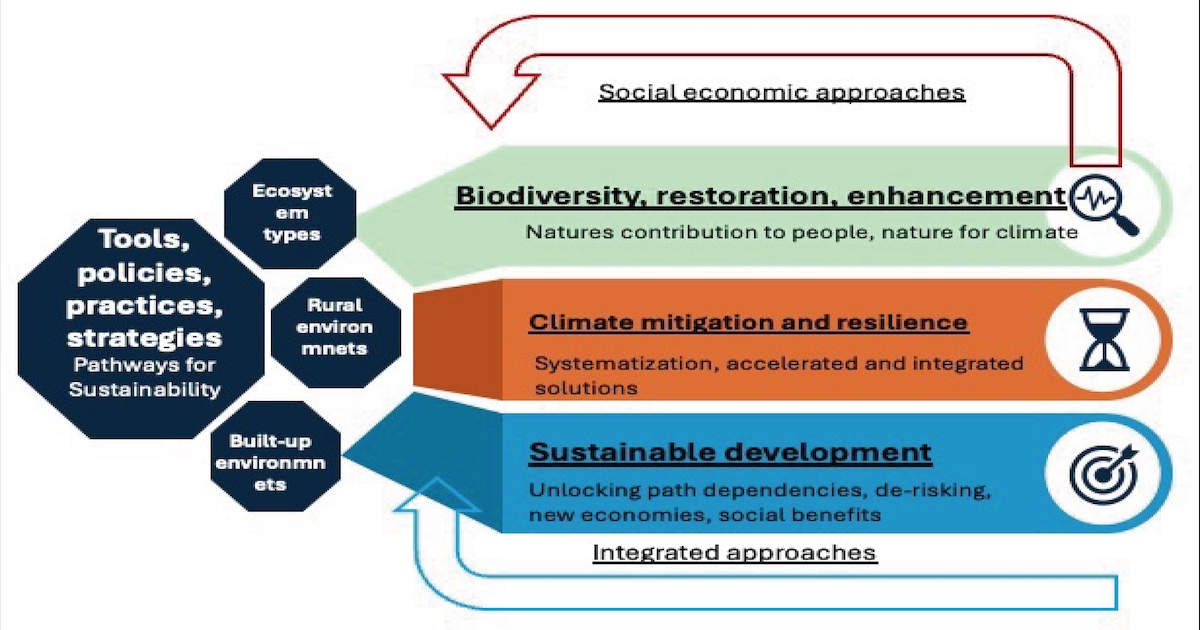Climate Change, Biodiversity and Sustainability
A special issue of Sustainability (ISSN 2071-1050). This special issue belongs to the section "Sustainability, Biodiversity and Conservation".
Deadline for manuscript submissions: 30 April 2026 | Viewed by 3001

Special Issue Editor
Special Issue Information
Dear Colleagues,
The Special Issue “Climate Change, Biodiversity and Sustainability” focuses on exploring the dynamic interconnections between climate change, biodiversity and sustainable development practices. This Issue aims to provide a platform for interdisciplinary research that analyses interactions between climate change and biodiversity but also examines innovative strategies, tools, policies and frameworks to mitigate climate impacts while promoting environmental sustainability. The Issue also provides a platform for research that examines sustainable development beyond SDGs. It seeks to address critical challenges in defining, quantifying and operationalizing climate change and biodiversity interactions, and how such interactions support sustainable development, through socio-economic, scientific, and integrated approaches.
By inviting contributions from diverse disciplines, this Special Issue aspires to enrich the existing literature by highlighting practical applications, policy developments and technological innovations that advance global sustainability. The content will emphasize solutions for measuring and monitoring sustainability, as well as integrating sustainability principles into climate, biodiversity and resilience frameworks. Papers focusing on all types of ecosystems, rural environments, and urban and built-up environments are encouraged. This Special Issue will contribute significantly to the academic discourse on sustainability, offering valuable insights for researchers, policymakers and practitioners working to achieve a balance between environmental conservation, restoration and socio-economic progress.
Prof. Dr. Shuaib Lwasa
Guest Editor
Manuscript Submission Information
Manuscripts should be submitted online at www.mdpi.com by registering and logging in to this website. Once you are registered, click here to go to the submission form. Manuscripts can be submitted until the deadline. All submissions that pass pre-check are peer-reviewed. Accepted papers will be published continuously in the journal (as soon as accepted) and will be listed together on the special issue website. Research articles, review articles as well as short communications are invited. For planned papers, a title and short abstract (about 250 words) can be sent to the Editorial Office for assessment.
Submitted manuscripts should not have been published previously, nor be under consideration for publication elsewhere (except conference proceedings papers). All manuscripts are thoroughly refereed through a single-blind peer-review process. A guide for authors and other relevant information for submission of manuscripts is available on the Instructions for Authors page. Sustainability is an international peer-reviewed open access semimonthly journal published by MDPI.
Please visit the Instructions for Authors page before submitting a manuscript. The Article Processing Charge (APC) for publication in this open access journal is 2400 CHF (Swiss Francs). Submitted papers should be well formatted and use good English. Authors may use MDPI's English editing service prior to publication or during author revisions.
Keywords
- climate change
- environmental sustainability
- sustainable development
- climate resilience
- biodiversity, sustainability tools
- environmental policy
- integrated approaches
- socio-economic impacts
- sustainable practices
- climate adaptation strategies
Benefits of Publishing in a Special Issue
- Ease of navigation: Grouping papers by topic helps scholars navigate broad scope journals more efficiently.
- Greater discoverability: Special Issues support the reach and impact of scientific research. Articles in Special Issues are more discoverable and cited more frequently.
- Expansion of research network: Special Issues facilitate connections among authors, fostering scientific collaborations.
- External promotion: Articles in Special Issues are often promoted through the journal's social media, increasing their visibility.
- Reprint: MDPI Books provides the opportunity to republish successful Special Issues in book format, both online and in print.
Further information on MDPI's Special Issue policies can be found here.





